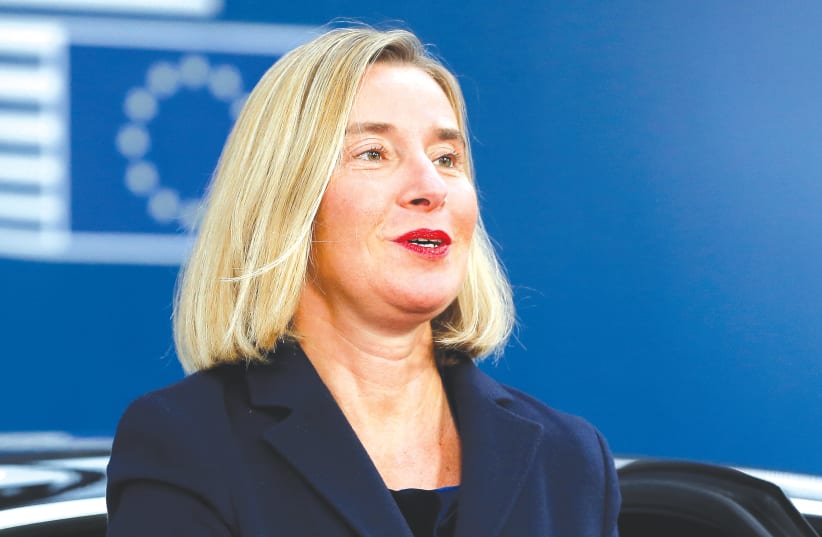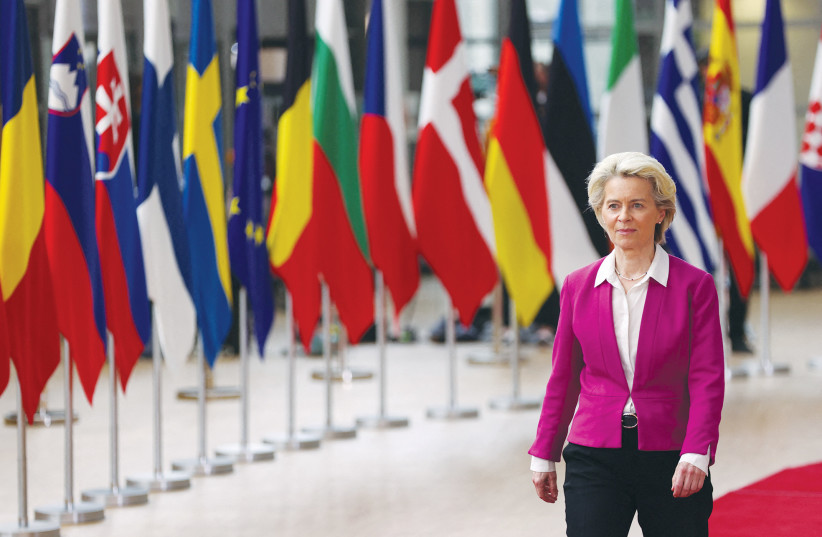In the years that I have been researching and analyzing the politics and finances of NGOs, I have heard and read numerous declarations from European officials on the importance of supporting and protecting these groups (known collectively as “civil society”). Such claims are used to justify the billions of euros that the EU and the individual countries channel, often without transparency, to such organizations annually.
Palestinian and Israeli political NGOs occupy a favorite position among European funders, receiving a highly disproportionate total of annual grants ostensibly to promote human rights, democracy, peace and other good deeds. When the officials are asked to justify providing funds to groups leading demonization campaigns through the “apartheid” label, the European funders avoid the substance and repeat the general slogans.
Even when a number of officials from some of the NGO grantees were involved in terror attacks, this did not convince the governments to perform the necessary due diligence or question the civil society mantras.
But now, Europe’s ties to the NGO industry are under a dark cloud that threatens to force major changes, and – just possibly – a complete overhaul. In Brussels, a number of officials, including influential members of the European Parliament (MEPs) and their assistants are being investigated for corruption – in the form of receiving large amounts in secret from the government of Qatar. According to media reports, 16 homes of officials were searched, and at least four people were arrested as part of an investigation into “criminal organization, corruption and money laundering.” One search uncovered €600,000 in cash.
The president of the European Parliament condemned the “malign actors, linked to autocratic third countries” that “have allegedly weaponized NGOs.” Allegedly, the NGO involved is called Fight Impunity, which, like many in the industry, claims to promote human rights and declares that “the principle of accountability as a central pillar of the architecture of international justice…” It has active social media accounts and co-sponsors events with EU agencies.
The high-profile honorary board members pictured on the website, including Federica Mogherini, the former EU foreign policy chief, lend the aura of legitimacy to the organization and to its fundraising efforts. (After the arrests, Mogherini and other honorary board members announced their resignation, quickly trying to distance themselves.) Among the NGO activists is Maria Arena, a Belgian MEP who promotes an anti-Israel agenda and headed the European Parliament’s subcommittee on human rights. (In the context of the investigation, Arena announced her “temporary resignation.”)
Of particular note is the website’s failure to provide any clue regarding the NGO’s finances, and no donors are listed. However, NGO Monitor’s researchers uncovered a reference to a December 2020 report, following European Commission President Ursula von der Leyen’s move to form an independent ethical committee to examine questions related to the role of a former EC commissioner on the honorary board of this NGO. A single line of that nine-page text stated: “The most important donor is the Sekunjalo Development Foundation.” Apparently, the EU officials did not bother to look further, and no action was taken.
What would've happened if they checked?
Had the EU officials checked (i.e., NGO due diligence), the officials and Brussels-based journalists, who also completely missed this story, would have found that the Sekunjalo Development Foundation (SDF) is based in South Africa, and has considerable baggage, including reports of Qatari funding. SDF is the “philanthropic division” of the powerful Sekunjalo Group’s investments and business deals, and related involvement should have raised numerous red flags in Brussels.
Among other entanglements, the group has worked with the Gupta family, which has been deeply implicated in the corruption cases against former South African president Jacob Zuma. And as the owner of Independent Newspapers & Media SA, Sekunjalo was accused of agreeing to Chinese censorship demands on reporting the mass internment of ethnic Uighurs. China is reportedly involved in numerous business arrangements with the South African firm.
ALL OF this information was readily available to the European officials involved with the NGO Fight Impunity, had they bothered to examine the details.
In contrast, as long as NGOs and their funder-enablers view “civil society” as a religion, complete with a halo effect protecting these groups and the funding process from critical analysis, the doors to corruption and abuse will continue to be wide open.
Perhaps this high-level scandal in the EU will finally result in a fundamental and overdue policy change, including regarding the wholesale funding of the small network of Palestinian and Israeli political NGOs, some of which are linked to terror groups. This change should begin with opening up the documents and meeting protocols in which NGO funding is decided, allowing for analysis of possible insider influence and corruption in the grant-making process involving tens of millions of euros.
In parallel, Europe needs to create mechanisms for NGO oversight, ending the free pass that allows these groups to exert political influence without accountability.
Like other major crises, the EU’s corruption scandal linking Qatar funding and the NGO facade is also an opportunity for repairing broken and dysfunctional mechanisms. The “weaponization of NGOs” is not limited to autocratic regimes far from Europe.
The writer is the founder and president of NGO Monitor and professor emeritus at Bar-Ilan University.

